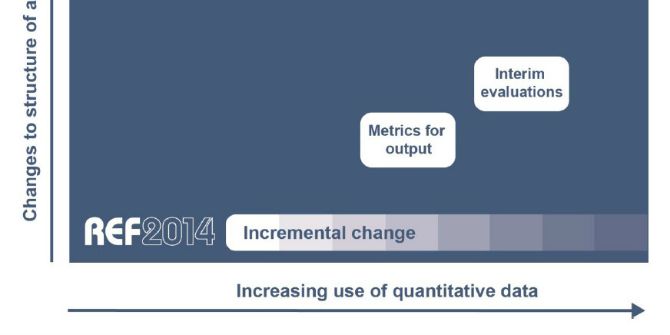 Academic blogging is increasingly valued by academics and institutions as a worthwhile activity. But universities are still struggling to provide the right balance of infrastructure and services to support their academics’ online presence. As universities look to external providers to extend the reach of scholarly ideas, what might be lost by not investing in in-house efforts? Sierra Williams identifies four key strengths of university-managed blogging spaces.
Academic blogging is increasingly valued by academics and institutions as a worthwhile activity. But universities are still struggling to provide the right balance of infrastructure and services to support their academics’ online presence. As universities look to external providers to extend the reach of scholarly ideas, what might be lost by not investing in in-house efforts? Sierra Williams identifies four key strengths of university-managed blogging spaces.
You don’t have to look very far to see examples of highly successful academic blogs and as someone who works on raising the visibility of one such effort here on the LSE Impact Blog, it is great to see that blogging is increasingly recognised as a productive, fruitful and worthwhile activity. Last week I spoke at an event at the University of Sheffield titled ‘From Clicks to Cites? Social media for social scientists and it was a great chance to reflect on why academics use social media, what universities are doing to encourage social media use and how these efforts are going (hashtag #NthExpo for more).
These kinds of events suggest that the higher education sector has finally moved beyond the ‘why blogging matters’ question. There are of course risks to online engagement and these are always important to discuss (for example, at the event we discussed the recent Guardian analysis of online abuse, harassment and trolling in their comment sections), but the benefits for public discourse, influence and impact are now widely apparent. But while many individual academics as well as those in digital and strategic communications roles in the sector recognise research blogging’s importance, related (but no less important) questions remain unanswered – the ‘who is going to pay for it’ and ‘how are these activities going to be more widely supported’ questions.
Whether academic blogs are individual-run, group-run or more mainstream media platforms, each brings something useful and different to the ecosystem of scholarly communication. For individual and group-run blogs, institutional support is not so much a particular concern as it is mainly an intrinsically-motivated pursuit. For institutional-run blogs and platforms, it is far more critical to make a coherent case for financial and organisational support. Digital platforms require infrastructure and personnel which almost always requires some sort of financial commitment. It appears that university-run platforms may be struggling to present a clear articulation of value and purpose. I realise I may be a particularly biased candidate to discuss this topic, but regardless of whether universities decide to fund blogs and in-house editorial positions or not, I think their contributions deserve to be explored. In light of the many different platforms, digital services and opportunities emerging, it is important to consider why university-managed blogging spaces matter.

A bit of background: I am writing this piece to contribute to conversations across higher education institutions that are recognising the value of a digital presence and online content but aren’t sure how this fits with wider activities going on at their institution. At the LSE we’ve had the benefit of being the ‘early adopters’ of academic blogging, but there are now loads of excellent university-run blogs in the UK – UCL, Nottingham, Manchester, Exeter, Oxford, Queen’s University Belfast, Bournemouth, KCL, Queen Mary, all host blogging content. And there are even more examples of department-run blogs not hosted on university servers (my favourites are University of Sheffield’s Faculty of Social Sciences’ Social Sci Research Medium blog and the Political Economy Research Centre blog at Goldsmiths, University of London).
But quality and regularly scheduled updates from these blogs can vary. In an age when most universities have social media profiles (are there any still without?), it seems strange that there is such a variable and limited presence of university blogging platforms. Only one of the above mentioned universities links to their blogs from their homepage (shout out Nottingham!). At the LSE, where blogs have a been an active feature for years, we are still working on how to build a sustainable network across the School. But I’m told change in higher education takes time.
So maybe it shouldn’t come as a surprise that traditional media outlets have recognised the influence of academic blogging and have built their own successful platforms to incorporate these voices. Times Higher Education have a blog, The Guardian have a bunch of science blogs, and of course a few years ago there was the famous example of the US academic social science blog The Monkey Cage moving to the Washington Post. And out of all this mainstream popularity came I think one of the biggest new players: The Conversation, an established Australian platform that has in the last five years expanded with editorial operations in the UK, US, France and Africa. Like the other platforms, they aim to feature academic perspectives on the latest news stories. The aspect that most sets this platform out from the rest is that it is primarily funded by a bunch of universities, research councils and other HE funders.
What a uniquely strange ecosystem this is. From group-run blogs with no university input or direction, to university-run blogs that facilitate these networks (but lack clear funding), to mainstream media platforms now funded by universities and research funders to support individual academic voices on current events. I genuinely think the entire ecosystem is served by this strange diversity. No one blog or platform could ever really provide a monopoly and all components of the ecosystem are working towards a shared and fundamental aim of improving the quality of public discourse through the inclusion and magnification of voices from the research community. And there is evidence to confirm a growing appetite for this ecosystem – a recent Wellcome Trust-funded survey found a majority of the public are interested in hearing from scientists on their latest research and in their own words.
 Recent survey conducted by Ipsos MORI (2016) confirms the value of platforms that get academics to talk about current research in their own words – great news for academic bloggers! (Source: Ipsos Mori (2016) Wellcome Trust Monitor, Wave 3. London: Wellcome Trust http://dx.doi.org/10.6084/m9.figshare.3145744 Creative Commons CC BY)
Recent survey conducted by Ipsos MORI (2016) confirms the value of platforms that get academics to talk about current research in their own words – great news for academic bloggers! (Source: Ipsos Mori (2016) Wellcome Trust Monitor, Wave 3. London: Wellcome Trust http://dx.doi.org/10.6084/m9.figshare.3145744 Creative Commons CC BY)
But I’m not so sure this ecosystem is equally recognised and it is certainly not equally funded. Why does it seem like university efforts are struggling for support, but external outlets like The Conversation are able to gain momentum? Well certainly The Conversation provides a valuable service so that’s a big reason, and obviously there are institutional challenges and bureaucracies that university-managed platforms have to deal with that make support difficult. (Sometimes I think the biggest thing holding back academic social media is not knowing which cost-centre it falls under). And this takes time and effort. Maybe it doesn’t make sense for every university to start from scratch. Mainstream media outlets already have a built-up audience. I can understand why external providers are turned to instead. But as I’ve mentioned, each type of academic blogging platform, whether individual, university-run, or external mainstream platform, provides something useful. What are institutions missing out on by not investing further in their own blogging spaces? Here is a brief look at four strengths of university-managed academic blogs.
1. University blogs offer a supportive space for professional development.
A sense of community is a core strength of university blogs. At a time when academic staff are under constant pressure and institutional disciplinary structures are outdatedly atomised, university platforms offer a great chance to reconnect around a wider theme of interest. When a platform has been invested in and connects with a wider community, this in turn encourages a positive feedback loop of further involvement and networked interactions that can stretch beyond disciplines, countries and sectors. This should be particularly valuable to universities who are constantly looking for ways to embed themselves into the minds and hearts of staff, students, alumni and future collaborators.
Alongside community-building is the recognition that research staff and academics may not actually understand what a blog is (or what a Twitter is) and how it fits into their working practice. Just providing an external partnership doesn’t mean academics will actually want to use it. University-managed spaces look to link up play here. This isn’t just a technical issue, this is a relationship-building issue. And journalists and media professionals don’t have the best track record with building relationships. Successful in-house spaces recognise academic incentive structures and look to support researchers with new forms of public engagement and communication. Maybe this researcher has never written for a general audience before, or maybe that researcher needs the entire process spelled out (because, let’s face it, publishing is always scary) – no problem! University blog editors understand institutional culture and limitations and can help make the blogging process more positive for all involved. Media platforms are pretty focused on one thing – clicks.
2. University blogs scale well alongside research communication and impact priorities.
Another strength is that scholarly infrastructure is already in a state of upheaval. Now is the perfect time for universities to be re-evaluating their scholarly communication practices and academic blogging fits very well alongside formal academic publishing (of which universities are increasingly looking to manage in-house). Blogging CMS infrastructure scales well and can support other online and digital activity in a university that may be housed elsewhere in the library, research division or learning centre. There is a great opportunity for accessible formats like blogs (and podcasts and video) to be made a university priority alongside other traditional formats like peer-reviewed publications. Due to the level of upheaval (dare I say, disruption) to the publication landscape, open access is now becoming a priority. But remember, accessibility is more than making academic papers openly available. The university is well positioned to function as a primary content creator and can prioritise accessible (and understandable and engaging and relevant and reusable) forms of communication.
Last week we had one post that received over 14,000 views on the Impact Blog. This was the most viewed item on the LSE website other than the homepage. This stat is not insignificant! Sure, these figures may pale in comparison to online media platforms, but considering investment and running costs, university blogs certainly punch above their weight. Blogs are driving significant traffic and this in turn benefits the wider visibility of LSE web spaces. By supporting university-managed spaces, universities reap the benefits of the traffic that their academics create. Win-win!
Most popular thing on the LSE website today: @LSEImpactBlog with the weird & wonderful world of academic Twitter! https://t.co/MYenOOdWfx
— LSE (@LSEnews) April 13, 2016
3. University blogs can draw on university brand for legitimacy (and vice versa).
University platforms are also able to convey a sense of legitimacy within the academic community which shouldn’t go unrecognised. While journals, experimental publishing collectives and group-run blogs have to build up esteem and recognition, universities can do this pretty much overnight due to their already existing cultural capital. This is not necessarily a positive thing – this also potentially leaves the door open for abuse, and because of this, I would argue university content should be held to a higher standard than other platforms. Name recognition of universities is powerful and universities can and should use this power for good (and not just shout about what place they are in some suspect league table). They should look to use this conferred legitimacy and promote a vibrant scholarly knowledge economy – an economy that isn’t reduced to journal impact factors or other media name brand recognition, but one that uses its own brand as education provider to improve the level of discourse and inclusion. Look, I’m the first one to wince at the phrase ‘university branding’, but if a university’s brand could be used to encourage a wider community around academic knowledge, then the brand is actually enabling the production of creative, engaging, and above all, evidence-based content (more on that below). Maybe then I also wouldn’t want to roll my eyes so much when the phrase was used.
4. University blogs remain committed to academic values.
This emphasis on discourse brings me to the final strength of university platforms, which is that it can prioritise academic values over other competing values. Rather than be dependent on traditional gatekeepers and hope that journalists use academic work in responsible ways, universities can own this for themselves and ensure that academic work is used responsibly. We can sit on the sidelines and complain about how mainstream media outlets continue to rely on the same white, male voices, or we can support university platforms that have active commitments to promote gender balance and the inclusion of minority voices.
University blogs are not “the media” and shouldn’t try to be; rather, university-managed digital spaces are mediating platforms that challenge traditional understandings of how media is consumed and how this in turn, could be made to work for universities’ needs and interests. Also our relationship with media is changing. Media is not just about consumption anymore – and research communication is not just about feeding into narrow newscycles – it is about creation and collaboration and connection. Digital media offer unprecedented opportunities for universities to be content creators, and not just feed the beast that is the 24-hour news cycle. Mainstream media outlets are of course much better suited to reaching general and wide audiences. But what about when someone wants to learn more about a topic in-depth? Or when a researcher wants to discuss a complex idea in an accessible way but without losing any of its beautiful complexity? That is when university platforms really come into their own. Complex ideas can be given the space and support to thrive in-house, and through the active maintenance of these university-run spaces, primary research has the opportunity to reach wider audiences in information-rich ways.
LSE's blog tops some publishers. "@charlierapple: Top tweeted URLs for scientific websites #force2016 @csugimoto pic.twitter.com/iknBJRNkVK"
— Prof Gina Neff (@ginasue) April 19, 2016
The Future
To steal from Martin Weller: The future of blogging is blogging. It may be a different landscape than it was ten years ago, but it is still a productive space, there are new innovations taking place, and there is still a lot for academics and universities to get out of this activity. But decisions need to be made and a coordinated digital strategy needs to be addressed head-on. Unfortunately if I’ve learned anything from working at a university for the last four years, it is that decision-making takes time. Time we may not be able to afford if these university spaces are to continue to thrive.
There is a question that comes up quite a lot when I talk to groups of academics and researchers about the benefits and risks of blogging and social media, which is whether institutional support for these efforts is a blessing or a curse. Recently on the Impact Blog we have featured pieces on the often tense relationship that exists between institutional social media policies and public scholarship by Cassidy Sugimoto and George Veletsianos, shedding light on the issues that still remain. Bonnie Stewart’s thought-provoking LSE NetworkEd talk a few weeks ago ended on a challenging note for the future of university social media spaces:
If as an academy we become good at [institutional approaches to digital spaces] then we can use our digital identities to contribute to public spheres in positive ways. If we do not become good at these things I think that we face a great deal of risk.
So are universities addressing these challenges and responding to the risks? These concerns point to a very important question about what the ideal role of the university should be in supporting academics to embrace more public and open ways of communicating their research and whether there is sufficient digital infrastructure to support this ideal.
Note: This article gives the views of the author, and not the position of the LSE Impact blog, nor of the London School of Economics. Please review our Comments Policy if you have any concerns on posting a comment below.
Sierra Williams is Managing Editor of the LSE Impact blog. She has an MPhil in Conflict Resolution and Reconciliation Studies from Trinity College, Dublin and a BA in Sociology from the University of San Francisco. Sierra previously provided research and administrative support for the LSE Impact of Social Sciences Research Project. Her interests are in open scholarship (including using social media across the research lifecycle), the role of expertise in society, and data sharing in the social sciences. She tweets @sn_will.









6 Comments